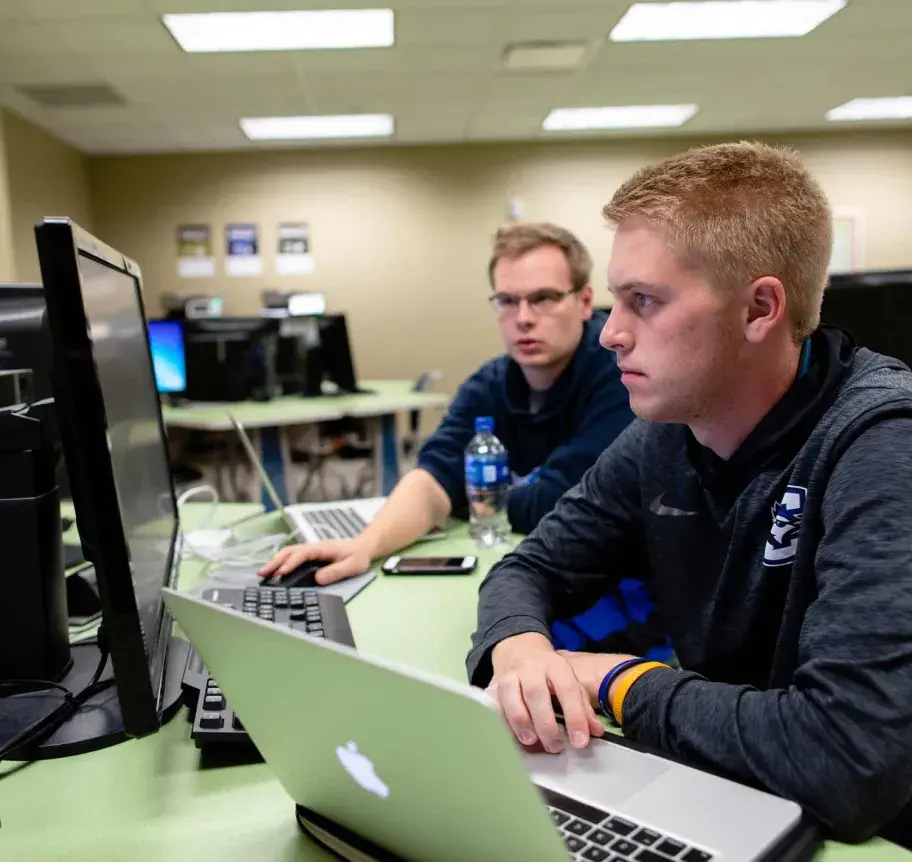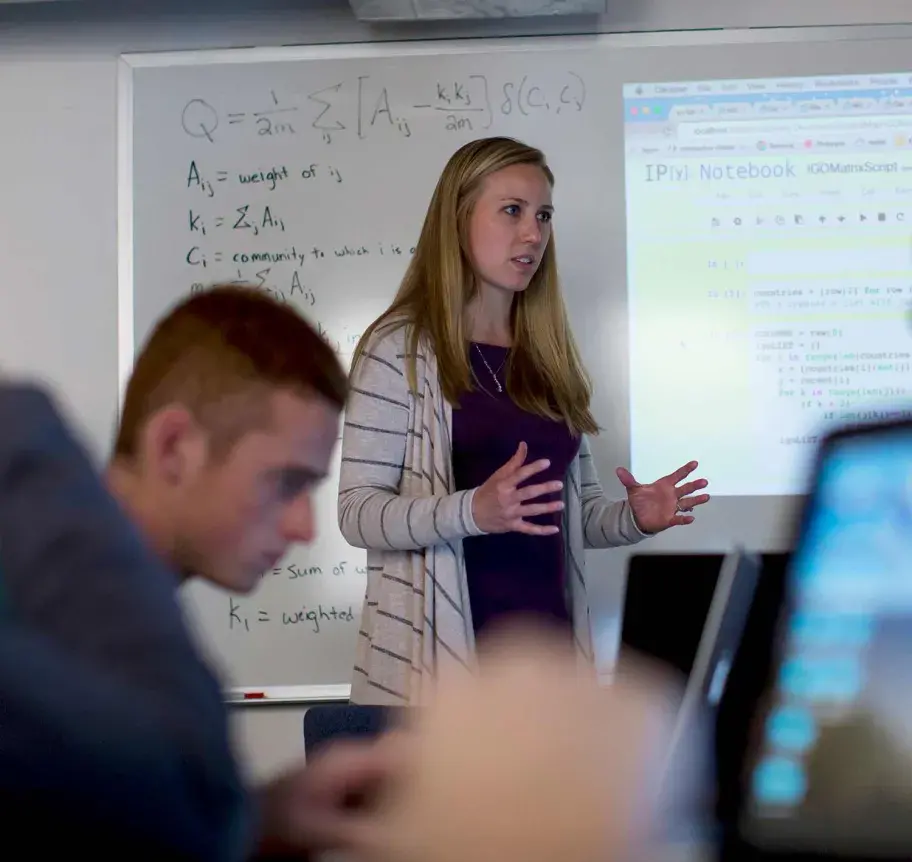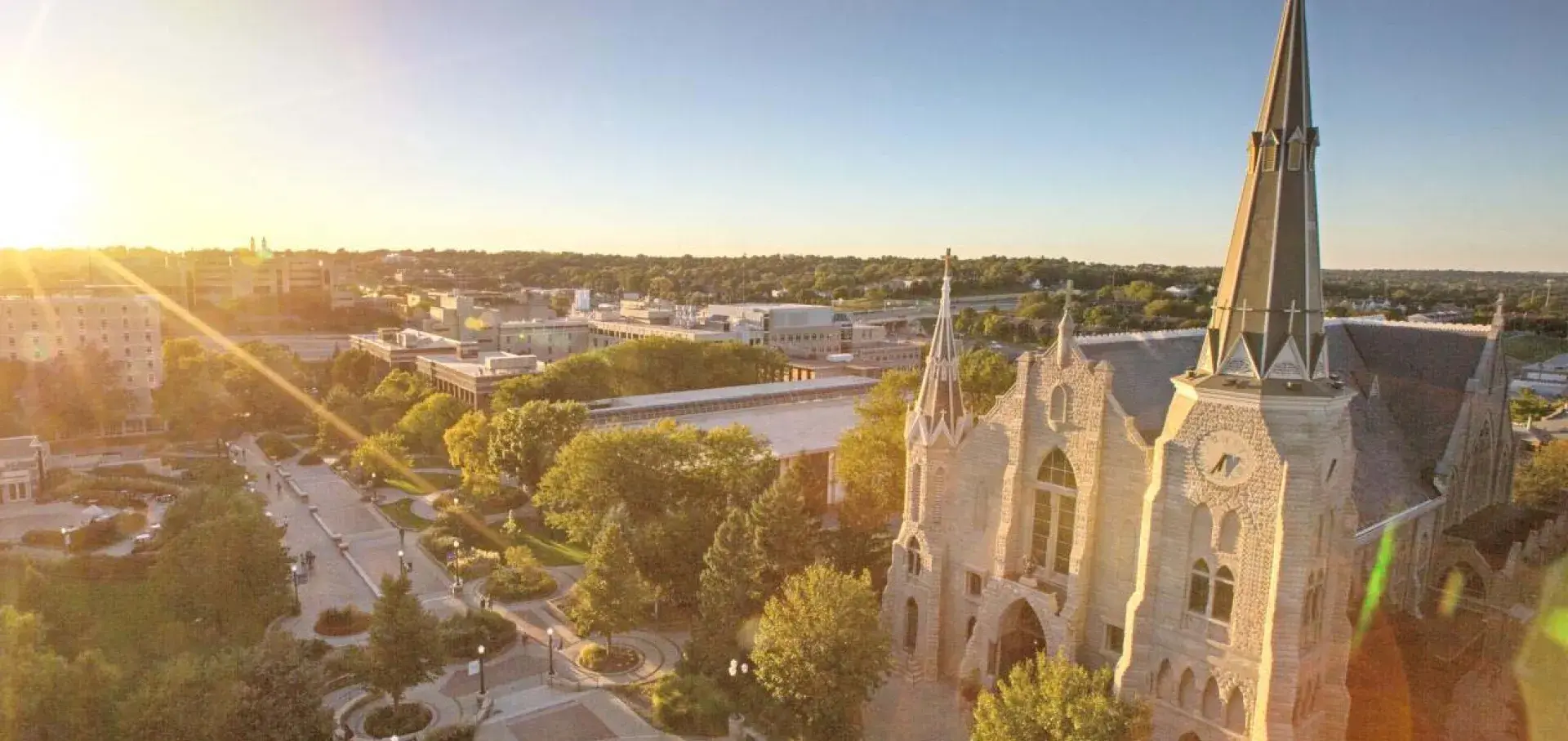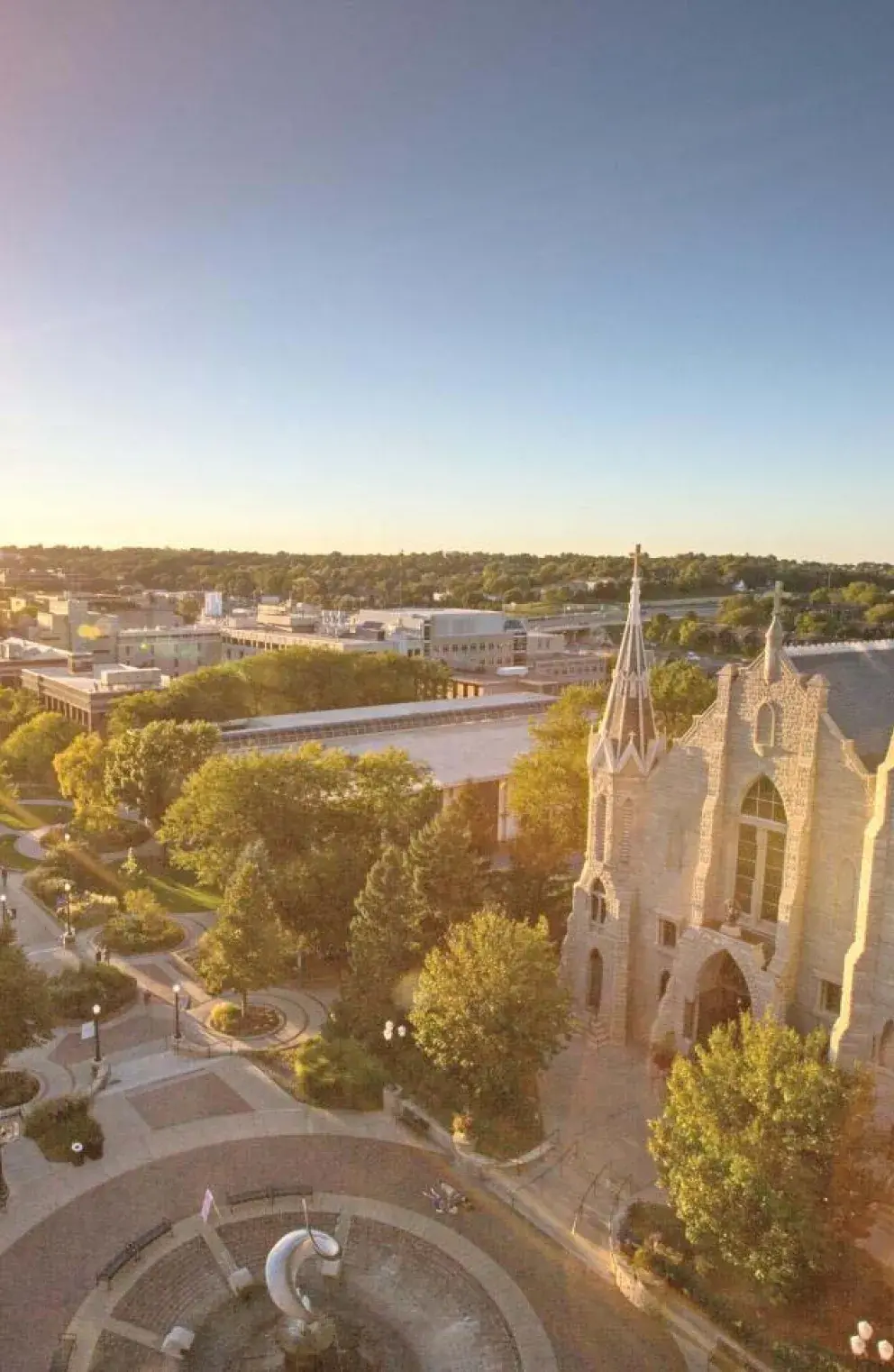
Data Science (Bachelor of Science)
Creighton’s Bachelor of Science in Data Science represents a balanced approach to modern data science by combining credits from mathematics, journalism, media and computing with a collaborative, service-learning-based capstone to give students valuable real-world experience.
This program is unique because of its interdisciplinary nature that allows for students to gain a grounded education in both statistics and computer science. Students have the option to specialize in advanced computing or advanced mathematics/statistics, giving them the chance to complete deeper study in one facet of data science.
The data science major is an exciting, interdisciplinary program that provides students with the skills to successfully interact with vast quantities of data along the entire data lifecycle.
Program Details
The Bachelor of Science in Data Science program combines computational and statistical thinking practices with a foundation in mathematics. This program prepares students to plan for, acquire, manage, analyze, model, and draw inferences from data to answer data-driven questions on a global scale.
Data scientists use statistical, computational and mathematical tools to extract meaningful insights and make real-time predictions from data in all fields.
Programs Goals
Students majoring in data science will apply statistical inference and modeling techniques to large data sets, develop computation and algorithmic problem-solving skills for interacting with data, and use mathematical tools to develop and evaluate new approaches for data modeling. Essentially, data science majors will be able to communicate with both data consumers and data producers through written, oral, and visual techniques and explore the ethical and professional issues surrounding the data revolution.
Curriculum
The Bachelor of Science in Data Science curriculum is 47 credits.
Specializations
- Advanced Computing. Students completing this track will select two advanced computing courses such as Algorithm Design and Analysis, Introduction to Artificial Intelligence, or Social Media Analytics.
- Advanced Mathematics and Statistics. Students completing this track will select two advanced mathematics or statistics courses such as Advanced Linear Algebra, Probability Theory (Mathematical Statistics I) and Theory of Inference (Mathematical Statistics II).
What You’ll Learn
In this degree program, you’ll learn how to:
- Design effective algorithms and analyze them
- Formalize algorithms as programs
- Use computer technology to execute programs
- Understand the impact of technology on problem-solving and society
- Use exploratory data analysis and graphical techniques to propose statistical models
- Demonstrate an understanding of statistical estimation and inference
- Use simulation and resampling to explore and evaluate statistical and algorithmic models
- Apply statistical models, algorithmic models, supervised and unsupervised machine learning models, as well as model averaging and ensemble methods
- Evaluate the performance and fit of a model
- Use linear algebra, matrix computation, optimization and probability as foundations for modeling and computation
- Demonstrate effective logical and critical thinking skills
- Collect, prepare and curate data from a variety of sources
- Design and build software systems to analyze complex, real-world data
- Become proficient in multiple paradigms of programming and statistical analysis
- Communicate technical ideas in written, oral and visual forms
- Work effectively in teams to solve problems
- Recognize and evaluate the power and limits of data and its analysis techniques
Admissions Requirements
Creighton admissions are based upon:
- High school GPA
- ACT or SAT scores*
- Extracurricular activities
- Personal statement to demonstrate creative abilities not reflected in your transcripts
- Recommendation from high school counselor
- Honors sections and advanced placement courses will enhance a candidate’s application
*For students who are choosing to apply test-optional, ACT/SAT exam scores are not required at the time of application for admission.
Dates & Deadlines
Applications for the fall semester open on Aug. 1 of the prior year. For scholarship consideration, the earlier you complete your undergraduate application, the better. For up-to-date deadlines, visit our admissions page.
Tuition & Financial Aid
Tuition rates are updated each year. Visit our financial aid site to learn more about the cost of attendance.
Financial Aid
Creighton University’s Financial Aid Office administers over $200,000,000 in student aid each year from federal, state, institutional and private sources.
To help make your undergraduate studies at Creighton University more affordable, we encourage you to file the FAFSA to apply for financial assistance. A variety of scholarships are also available.



Outcomes
Data scientist is consistently ranked one of the best jobs in America by Glassdoor, and there is a wealth of opportunities available to new graduates in data science. After graduation, students may work as data scientists, data engineers, machine learning engineers or statisticians. Students will also be well-prepared for graduate study in data science, machine learning, computer science or statistics.
Data scientists are in high demand. The number of available data science jobs is predicted by the Bureau of Labor Statistics to grow by between 15% (computer and information research scientists) to 33% (statisticians) in the next two decades.







